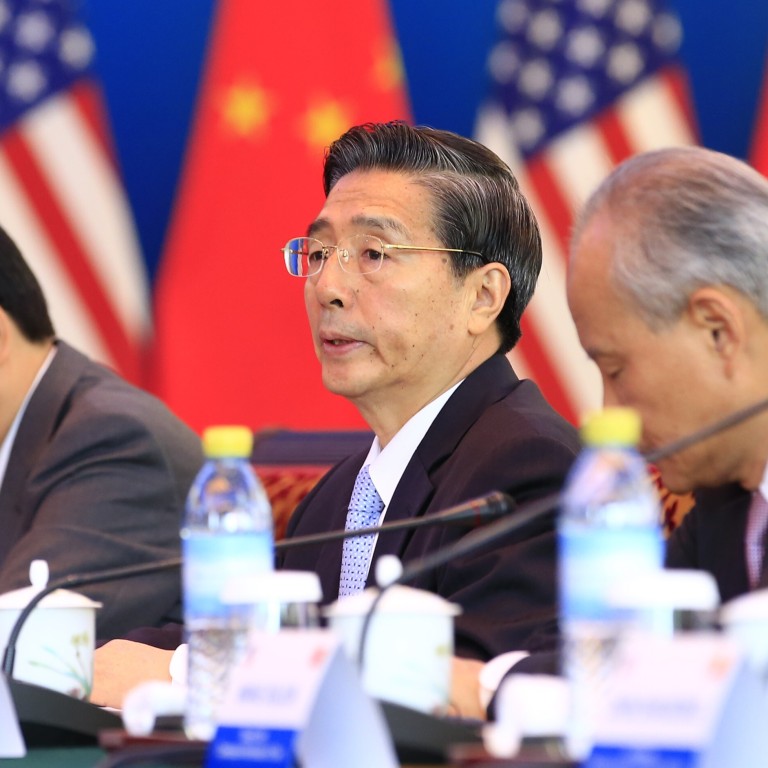
Our tense rivalry with US will foster political volatility in China, warns domestic security chief
- Politburo member Guo Shengkun says China ‘must defend against and strike hard on sabotage, subversion and splittism by hostile forces’
- In a new book, political leaders address how to carry out the next five-year plan, including the predicted role of ideology in international relations
“Against the backdrop of US-China confrontation, China faces increasing uncertainty and instability in its external environment,” Guo Shengkun, a member of the party’s 25-strong Politburo, wrote in an article about China’s security risks in the next five years.
“Conventional and unconventional security challenges are on the rise, they are now more overlapped, interconnected, penetrating and can be easily magnified,” he wrote. “[They] could constitute systemic risks if not handled properly.”
The article was published this month in a book by the official People’s Publishing House. The book is the official explanation of the party’s directive carrying the wordy title Guidance Reader on CCP Central Committee Recommendations on the Formulation of National Economic and Social Development Targets for the 14th Five-Year Plan and the 2035 Vision.
Guo, 66, heads the party’s Central Political and Legal Affairs Commission, which oversees all legal and security matters. His portfolio covers China’s police, spy agencies, prosecutors, courts and prisons.
He said the series of risks must be controlled with a complete “chain” that covered the sources, transmission and transformation of the risks.
As China’s confidence grows, it looks to ‘design’ how war is fought
Guo also pledged to “resolutely” safeguard political security against “subversions”, repeating a line in the party’s directive on the next five-year plan.
“[We] must firmly safeguard the state’s political safety, regime safety and ideological safety,” the document said. “[We] must defend against and strike hard on sabotage, subversion and ‘splittism’ by hostile forces.”
Looking domestically, Guo said China had to step up its biosafety laws and improve its ability to handle disasters as well as help the poor to prevent “extreme criminal cases by individuals”.
US presidential election: China congratulates Joe Biden
In contrast to the “chaos” taking place in developed countries because of the coronavirus pandemic, Guo said he took pride in China’s stability since the first outbreak this year.
“During the pandemic, we seized important achievements in a short time and have posed a great contrast between ‘China’s orderliness’ and ‘the West’s chaos’,” he wrote.
Guo’s statement made a rare explicit reference to the United States.
In May, Chinese Defence Minister Wei Fenghe also singled out the United States, warning that US-China strategic confrontation had entered a high-risk period.
The new book also included an article by Yang Jiechi, another Politburo member and the party’s top diplomat, who argued that ideological confrontation would play a bigger role in international relations over the next five years.
“Certain countries try to divert domestic problems and hype up ideological confrontations, and suppress others in the name of religious freedom and human rights,” wrote Yang, without naming the United States.
Yang pledged to resolutely defend China’s stance on Taiwan, Hong Kong, Xinjiang and Tibet against “foreign interference”. But he used a softer approach when discussing the South China Sea, saying China should “effectively safeguard” its sovereignty and maritime interests.

